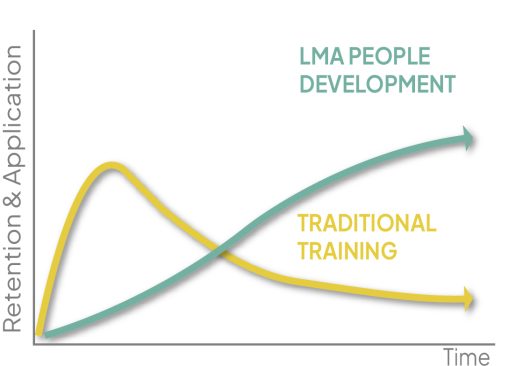The Most Common Mistakes Managers Make #5
Leadership,

The most common mistakes managers make #5 — Failing to lead by example
How often do managers use the phrase, “just do as I say”, or something similar? Usually, it’s right after they’ve done something that contradicts their words. Managers regularly fail to recognise that team members closely model their own behaviour on their manager’s behaviour.
By acting in a manner contrary to what they have asked of their team, managers undermine their own position and significantly weaken their ability to achieve goals and outcomes. When managers just ‘talk the talk’, they become models for the wrong types of behaviour. Effective managers know they must ‘walk the talk’.
So, what are some of the causes of this mistake?
Managers often let themselves down by saying one thing and doing another. Sometimes it comes through laziness – it’s easier just to do something the same old way. Other times it comes through forgetfulness or a lack of care – the manager can’t remember what was said and what they meant. Other times it is because of lack of time, so they are tempted to cut corners and just go with the easiest or simplest option.
Leading by example takes some effort but should not be overwhelming for any manager. Unfortunately, some managers believe that behaving differently to the way they demand that their people behave shows their authority as the ‘boss’.
Sadly, “Connie the Contradiction” found this out the hard way. She asked her team to be on time for their regular Monday morning meeting. She requested that they have their ‘Work in Progress’ reports to her by Friday lunchtime each week. She also promised to provide feedback to each team member in a regular catch-up session.
So, imagine the team’s consternation when she routinely showed up for the meeting 10-15 minutes late, and forgot to gather all the reports before she walked out the door each Friday. To make matters worse, she seldom caught up with the team to provide feedback. She became a walking, talking contradiction…a running joke to her team and others in the organisation…let alone, a highly ineffective manager. Over time, the team started to mirror her behaviours.
Acting in a way that contradicts a previously stated position not only sets a manager up for failure…it can fragment a team’s unity. In this situation, not leading by example shows a lack of respect and sends a message that what has been asked for doesn’t really matter. In other cases, it may substantially reduce the confidence team members have in their manager’s ability to lead.
Managers need to reflect on their own actions and behaviours and ask “Are these the actions I want my people to take in order to achieve optimum results?”
So, what are some of the ways that this mistake can be avoided?
Managers should be highly consistent in what they say and what they do. There should be clear alignment between the two, and little, if any, room for employees to get the wrong idea.
Managers also need to behave and communicate in a fashion consistent with their objectives. They should be the bedrock that others can trust and rely upon to show the way.
If “Connie the Contradiction” had followed her own direction and led by example, the team and others would have continued to adopt the right way of doing things, resulting in more effective teamwork and results, to name just a few benefits. Over time, she would have also earned and retained her team’s respect, and gradually strengthened her authority and effectiveness as a manager.
We have seen countless managers who make their lives difficult because they don’t realise the importance of leading by example. They refuse to recognise, or fail to accept, the responsibility that goes with being the manager. They fail to see the tremendous potential of personally setting the benchmark for desired behaviours, actions and attitudes.
When properly coached, such managers can quickly change…and it’s amazing how positively their transformation is accepted by the team, and how much the organisation benefits.
‘Leading by example’ will contribute to the manager earning greater respect and trust from their team. By being prepared to show leadership, and being consistent in thoughts, words and deeds, others will engage and adopt the desired way of doing things. In time, this will lead to greater productivity and to achieving results which more closely align with the overall goals of the manager and the organisation.
To be effective, managers need to not just ‘tell’…they need to show!


